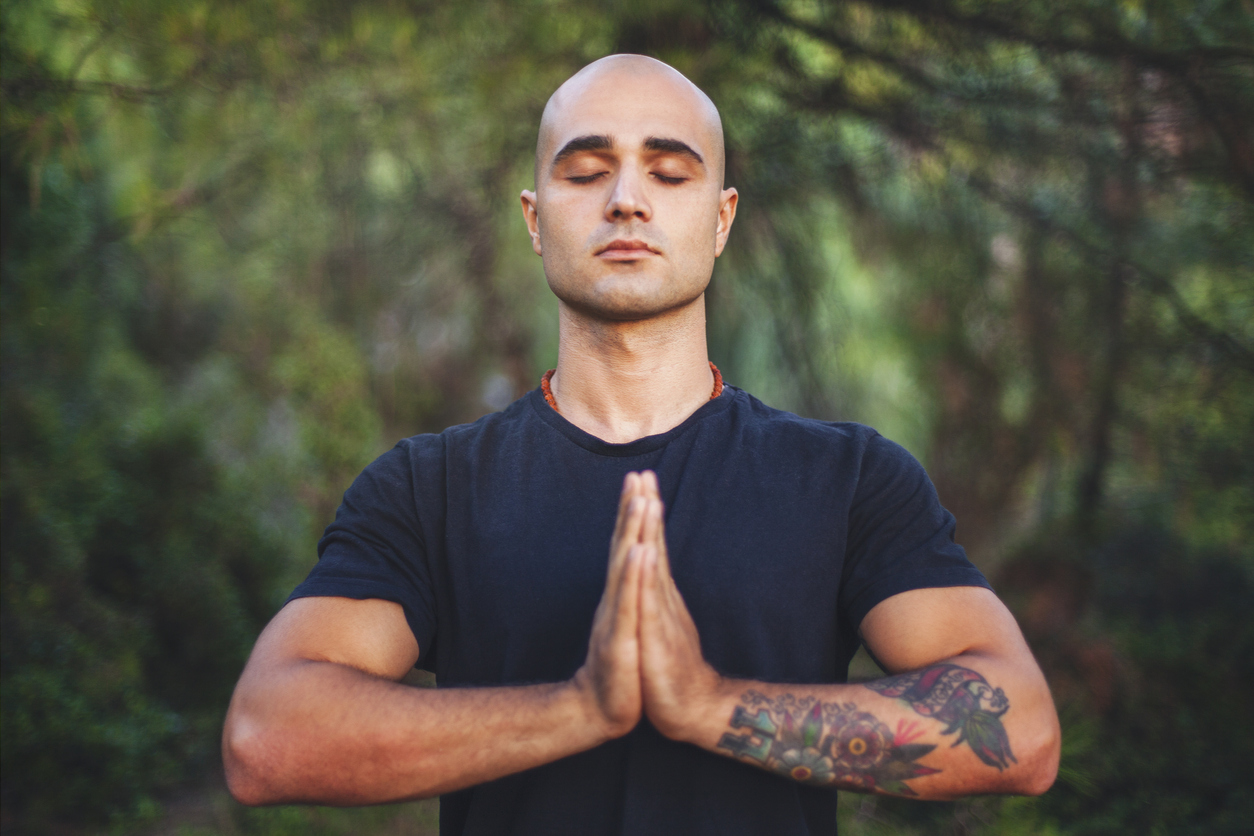Panic attacks and anxiety impacts our life in many ways, but there are a ton of coping tools available. However, during this time of the COVID-19 crisis, it might feel harder to utilize the tools that tend to be so widely available. For instance, gyms and yoga studios are closed, you might have lost some income, and we should be staying inside to help lessen the spread of this virus. This has created not only a lot of sudden change, but also much more anxiety, even in people who don’t struggle with anxiety on a regular basis.
Despite the challenges of panic attacks and other anxiety symptoms, there are many self-help strategies that can assist you in coping with these feelings. Activities such as breathing and other relaxation techniques are available to help you feel more calm, peaceful, and in control. Some of the most common strategies include breathing exercises, visualization work, and yoga. These techniques have been found to reduce anxiety and may even help panic attacks.
 Yoga happens to be an activity that actually has all many relaxation techniques. Plus, yoga has been known to help ease stress, reduce feelings of nervousness, and enhance mindfulness. For these reasons, yoga can be a great tool during this time where many things are changing at once and feelings of anxiety can be extreme.
Yoga happens to be an activity that actually has all many relaxation techniques. Plus, yoga has been known to help ease stress, reduce feelings of nervousness, and enhance mindfulness. For these reasons, yoga can be a great tool during this time where many things are changing at once and feelings of anxiety can be extreme.
A small but intriguing study done at the University of Utah provided some insight into the effect of yoga on the stress response by looking at the participants’ responses to pain. The researchers noted that people who have a poorly regulated response to stress are also more sensitive to pain. Their subjects were 12 experienced yoga practitioners, 14 people with fibromyalgia (a condition many researchers consider a stress-related illness that is characterized by hypersensitivity to pain), and 16 healthy volunteers.
When the three groups were subjected to more or less painful thumbnail pressure, the participants with fibromyalgia — as expected — perceived pain at lower pressure levels compared with the other subjects. Functional MRIs showed they also had the greatest activity in areas of the brain associated with the pain response. In contrast, the yoga practitioners had the highest pain tolerance and lowest pain-related brain activity during the MRI. The study underscores the value of techniques, such as yoga, that can help a person regulate their stress and, therefore, pain responses.
Benefits of Yoga for Anxiety
Although many forms of yoga practice are safe, some are strenuous and may not be appropriate for everyone, especially if you are dealing with mental and physical anxiety.
For people dealing with depression, anxiety, or stress, yoga can be a great way to better manage symptoms. The scientific study of yoga demonstrates that mental & physical health are not just closely related, but are essentially deeply connected. Evidence is starting to prove that most yoga practices are a relatively low-risk, high-yield approach to improving overall health.
In 2011, Harvard published an analysis of data from a sample of people and found that 3% (the equivalent of nearly 6.4 million Americans) had been advised by their health care practitioners to use mind-body therapies like yoga and meditation — and more than a third of those patients had a diagnosis of anxiety.
 “We’ve seen a significant uptick in referrals from psychologists, especially for patients with anxiety,” says Steve Hickman, PsyD, executive director of the University of California San Diego Center for Mindfulness, where health care practitioners — including psychologists — conduct mindfulness research and offer classes for patients. “Therapists and doctors are rethinking their attitudes toward meditative approaches largely because there’s a persuasive body of evidence showing that [these modalities] can help with stress and mood disorders.”
“We’ve seen a significant uptick in referrals from psychologists, especially for patients with anxiety,” says Steve Hickman, PsyD, executive director of the University of California San Diego Center for Mindfulness, where health care practitioners — including psychologists — conduct mindfulness research and offer classes for patients. “Therapists and doctors are rethinking their attitudes toward meditative approaches largely because there’s a persuasive body of evidence showing that [these modalities] can help with stress and mood disorders.”
The Science Behind Yoga for Anxiety
The science in hundreds of studies have looked at the benefits of meditation for calming the mind, but possibly the most definitive paper was published in the journal of JAMA Internal Medicine. In the review, researchers at Johns Hopkins University analyzed 47 studies on meditation programs that involved at least four hours of training. “We found consistent evidence that mindfulness meditation reduced the symptoms of anxiety to some degree across studies,” said Madhav Goyal, MD, lead author and assistant professor of medicine. “When you’re anxious, your mind can get carried away with worrying about things that might happen, and that actually makes you feel worse and can cause other symptoms, like insomnia. Meditation teaches people certain skills that can help counteract that tendency, like staying in the moment, recognizing worried thoughts when they’re happening, and preventing them from getting worse.”
In the research, about 20 to 30 minutes of daily mindfulness meditation — a specific type that aims to cultivate awareness of present-moment thoughts, feelings, and experiences — showed the most promise. But there’s evidence that many other meditation types can be effective, as well. Based on his team’s findings, Goyal, a practicing internist, now recommends meditation not only to his patients with anxiety but also to those who are depressed and in physical pain — the two other conditions for which the study found the practice to be effective. “It works and it’s safe, and that’s a good combination,” he says.





